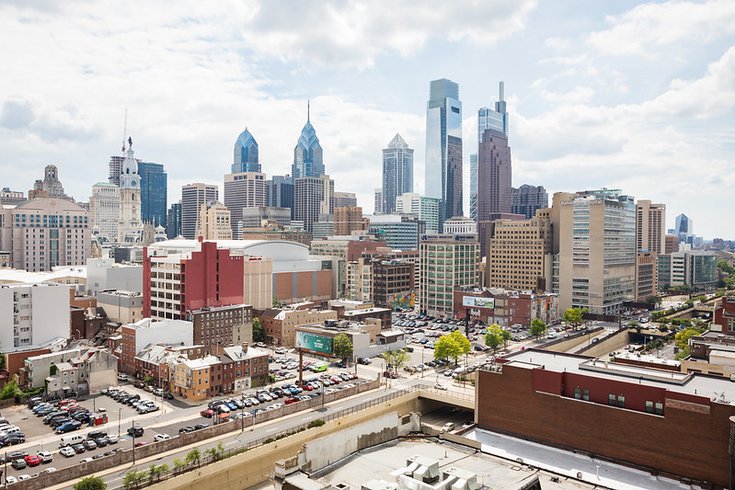
September 17, 2020
 Thom Carroll/for PhillyVoice
Thom Carroll/for PhillyVoice
Prior to the coronavirus pandemic, Philadelphia was showing signs of improving its poverty rate and a rising median income, according to the U.S. Census Bureau's annual American Community Survey.
The economic toll of the coronavirus pandemic on U.S. cities may not be known for some time to come, but new census data suggests Philadelphia was showing signs of improvement before COVID-19.
The annual American Community Survey released findings from 2019 on Thursday, providing a snapshot of modest improvements both nationally and locally last year.
In Philadelphia, where the deep poverty rate has been among the worst in the U.S. for years, the overall poverty rate stood at 23.3% in 2019. That was down from 24.5% in 2018 and 25.7% in 2016.
The city's median income rose from $46,116 in 2018 to $47,474 in 2019.
"This data gives me confidence in the strategies we adopted during the first term of our administration to tackle the systemic challenge of poverty in Philadelphia," Mayor Jim Kenney said. "However, we know that the recent public health and economic crisis caused by the COVID-19 pandemic is not captured in this data, which only reflects 2019."
Nationwide, real median household income, adjusted for inflation, rose 4.5% to $65,712 in 2019, according to the ACS. Increases were seen in 23 of the 25 most populous metropolitan areas from 2018 to 2019.
The national poverty rate fell to 12.3% in 2019 from 13.1% in 2018, the largest percentage decrease from year-to-year since the inception of the ACS in 2005.
"American Community Survey estimates serve as 'America's mirror' by providing a detailed look at how communities are changing and what must be done to meet the unique needs of their residents," said Donna Daily, chief of the Census Bureau's ACS Office. "People across the nation use ACS estimates to make critical planning decisions every year, including how to respond to emergencies such as the COVID-19 pandemic. Additionally, this data can serve as a pre-crisis benchmark for future research."
Kenney said the setbacks caused by the pandemic now mean stronger action is required to protect those who are most vulnerable.
"Today, because of the pandemic, tens of thousands of our residents' lives have become more precarious, as unemployment has increased and businesses have been forced to close," Kenney said. "We know this is especially true for communities of color who have long been disproportionately impacted by poverty and other systemic inequities. Now more than ever, it is imperative that we take action to help Philadelphians, especially Black and Hispanic residents, meet their basic needs in the short term, and improve their financial stability and economic mobility in the medium and long term."
Philadelphia continues to urge residents to complete their 2020 census questionnaire, which is used to determine federal funding that the city will receive. City Councilwoman Jamie Gauthier warned this week that only 55% of Philadelphia households have completed the census, with just weeks remaining before a Sept. 30 deadline, unless it is extended.
The cost of residents not responding to the census could be devastating for the city, which would lose $22,000 for each person who does not fill it out.
Each person who doesn't fill out the census means a loss of $22,000 for our neighborhoods - and we can't afford to lose this money.
— Councilmember Jamie Gauthier (@CouncilmemberJG) September 14, 2020
Please fill out your census today at https://t.co/8F7cIRvEDF! Contact our office if you have questions, we'd be happy to assist you. (2/2)